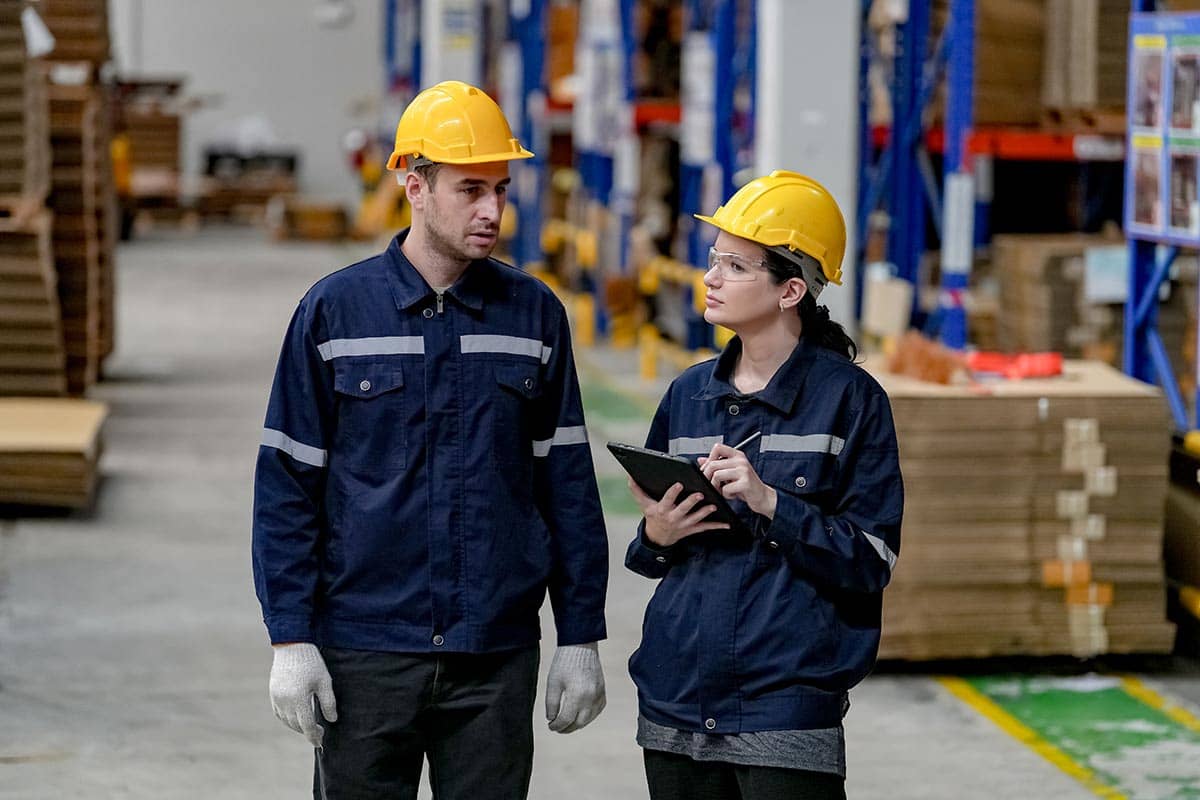In today’s dynamic and ever-evolving world, the pursuit of economic prosperity often takes centre stage. Companies, both large and small, strive to increase their profits, boost productivity, and gain a competitive edge. Yet, amidst this relentless pursuit of success, a critical aspect often gets overlooked – workplace safety. The economics of workplace safety is a topic of paramount importance, as it not only impacts the well-being of employees but also has a significant bearing on a company’s bottom line. We will also explain how best to approach making an accident at work claim.
Understanding the Economic Impact of Occupational Accidents
Occupational accidents and workplace injuries can exact a heavy toll on both individuals and organisations. The economic consequences of these accidents ripple through the fabric of society, affecting not only the injured worker but also their families, colleagues, and the broader community. To fully comprehend the economics of workplace safety, we must delve into how these accidents impact various facets of the economy.
Human Cost
The most apparent cost of workplace accidents is the human one. When employees are injured or fall ill due to work-related incidents, it leads to a loss of productivity as they are unable to perform their duties. Moreover, these accidents often result in medical expenses, rehabilitation costs, and, in severe cases, long-term disability. All of these factors contribute to a significant economic burden.
The Cost to Employers
For businesses, the direct financial implications of workplace accidents can be substantial. When an employee is injured, the company must bear the costs of worker’s compensation, which includes medical bills and wage replacement. Additionally, there are indirect costs such as hiring and training replacement workers, repairing damaged equipment, and potential legal fees if negligence is involved.
Productivity and Efficiency
Beyond the immediate financial impact, workplace accidents can disrupt productivity and efficiency within an organisation. When an accident occurs, it often necessitates an investigation, documentation, and compliance with regulatory requirements. All these activities divert resources and time away from core operations, resulting in a decrease in productivity.
How Safety Affects Productivity in the Workplace
Now that we’ve established the economic consequences of workplace accidents, let’s explore how prioritising safety can positively affect productivity in the workplace.
Improved Employee Morale
Safety measures and a culture of workplace safety can significantly improve employee morale. When employees feel that their well-being is a top priority for the company, they tend to be more engaged, satisfied, and motivated. This increased job satisfaction can lead to higher productivity levels as employees are more committed to their tasks.
Reduced Absenteeism
A safe workplace is associated with lower absenteeism rates. When employees are less likely to get injured or fall ill due to work-related incidents, they are more likely to show up for work consistently. Reduced absenteeism means that there are fewer disruptions in the workflow, resulting in increased productivity.
Enhanced Efficiency
Implementing safety measures often goes hand in hand with improving workplace processes and efficiency. Companies that prioritise safety tend to identify and eliminate hazards, streamline workflows, and invest in better equipment. These improvements not only reduce the risk of accidents but also enhance overall efficiency, leading to higher productivity levels.
Lower Employee Turnover
A safer workplace can also contribute to lower employee turnover rates. Employees are more likely to stay with a company that values their safety and well-being. High turnover can be costly for businesses, as they must invest time and resources in recruiting, hiring, and training new employees. By reducing turnover, companies can maintain a stable and experienced workforce, which can boost productivity.

The UK’s Approach to Workplace Safety
To gain further insights into the economics of workplace safety, we can look at the approach taken by the United Kingdom, a country known for its strong emphasis on occupational health and safety.
Legislation and Regulation
The UK has a robust legal framework in place to ensure workplace safety. The Health and Safety at Work Act 1974 is a cornerstone of UK health and safety legislation. This act places a legal duty on employers to ensure the health, safety, and welfare of their employees. Failure to comply with these regulations can result in severe penalties, including fines and even imprisonment for company directors in cases of gross negligence.
The Health and Safety Executive (HSE)
The Health and Safety Executive (HSE) is the UK’s regulatory body responsible for enforcing health and safety regulations. The HSE conducts inspections, provides guidance to businesses, and takes enforcement actions against those that fail to meet safety standards. This proactive approach helps prevent accidents and promotes a culture of safety in workplaces across the country.
Investment in Training and Education
The UK places a strong emphasis on training and education in the field of workplace safety. Various organisations and institutions offer courses and certifications in health and safety, ensuring that professionals are well-equipped to manage safety in their workplaces. This investment in education contributes to a safer working environment and, in turn, has positive economic implications by reducing accidents and their associated costs.
Economic Benefits
The UK’s commitment to workplace safety has yielded substantial economic benefits. Research by the Health and Safety Executive (HSE) indicates that for every £1 invested in health and safety, there is a return of £2.20 in economic benefits. These benefits include reduced absenteeism, increased productivity, and a decrease in workplace accidents. This demonstrates that prioritising safety is not just a moral imperative but also a sound economic decision.
Making an Accident at Work with National Claims
Now, let’s step into the shoes of National Claims, a company that specialises in helping individuals who have experienced workplace accidents navigate the legal and financial aspects of their situations.
At National Claims, we understand that accidents at work can be devastating, both personally and economically. When you’ve been injured on the job, you not only face physical and emotional challenges but also financial uncertainties. That’s where we come in. We’re here to guide you through the process of seeking compensation and ensuring that your rights are protected.
Our Role
When you’ve been involved in an accident at work, the first step is to seek medical attention and report the incident to your employer. But what comes next? This is where National Claims steps in. We have a team of dedicated experts who specialise in workplace injury claims. Our goal is to help you secure the compensation you deserve.
Evaluating Your Case
One of the key aspects of the economics of workplace safety is understanding the financial implications of an accident. As experts in this field, we will carefully evaluate your case to determine the full extent of the economic impact. This includes assessing medical bills, lost wages, rehabilitation costs, and any other expenses related to your injury. Our thorough evaluation ensures that you are not left bearing the financial burden of an accident that was not your fault.
Navigating the Legal Process
The claims process surrounding workplace injury claims can be complex, and it’s essential to have a knowledgeable advocate on your side. We will work tirelessly to gather evidence, negotiate with insurance companies, and, if necessary, represent you in court. Our goal is to secure the compensation you need to cover medical bills and lost income, allowing you to focus on your recovery.
Conclusion
In conclusion, the economics of workplace safety is a critical consideration for individuals and organisations alike. Workplace accidents can have a profound impact, leading to significant economic costs and personal hardships. However, by prioritising safety and adhering to regulations, companies can mitigate these risks and even experience economic benefits.
The case of the United Kingdom illustrates the positive economic outcomes that can result from a strong commitment to workplace safety. The UK’s legal framework, regulatory bodies, and investments in training have contributed to a safer and more productive working environment.
At National Claims, we understand that accidents at work can happen, despite all safety measures. When they do, we are here to support you, evaluate the economic impact of your situation, and guide you through the legal process to ensure that you receive the compensation you deserve. Remember, safety in the workplace is not just a legal obligation; it’s an investment in the well-being of employees and the economic success of organisations.
Contact us to get started on your claim for any accident at work you may have experienced.
Click below to see why we are one of the most trusted claims management companies in the UK.

We’re proud of our excellent customer reviews
We thrive on delivering exceptional service and ensuring our clients’ satisfaction. Don’t just take our word for it. Check out some of our independent reviews to see what our clients have to say.
Excellent

This firm is excellent, they sorted out my car pay out and injury claim very fast, they always communicate with you all the time.

My accident case was dealt with confidence and with great result of the outcome, especially James kept me informed all the time.

I was very impressed at the way my inquiry was treated. I was listened to attentively and everything I needed to know was explained to me.






